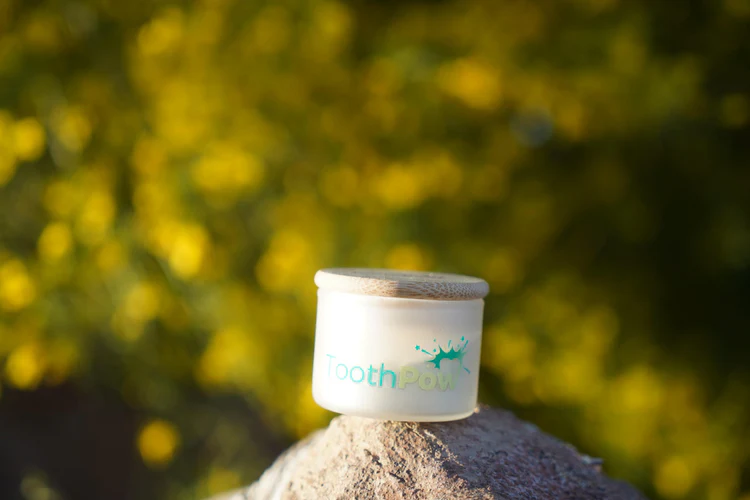Introduction
Sugar is a prevalent part of modern diets, found in everything from obvious sources like candies and sodas to hidden culprits like processed foods and condiments. While sugar can be a delightful treat, it's essential to understand its impact on your dental health. This article explores the connection between sugar and tooth decay, explaining how sugar affects your teeth and offering practical tips for prevention.
How Sugar Causes Tooth Decay
The relationship between sugar and tooth decay starts with the bacteria in your mouth. Your mouth is home to numerous bacteria, some beneficial and others harmful. When you consume sugary foods and drinks, the harmful bacteria feed on the sugars and produce acids as a byproduct. These acids are responsible for the demineralization of your tooth enamel.
The Role of Oral Bacteria in Tooth Decay
Oral bacteria such as Streptococcus mutans thrive on sugars and are primary contributors to tooth decay. When these bacteria metabolize sugars, they produce acids that erode the enamel, the protective outer layer of your teeth.
The Process of Acid Production and Enamel Erosion
The acids produced by bacteria lower the pH level in your mouth, creating an acidic environment that weakens and dissolves the minerals in tooth enamel. Over time, this demineralization leads to cavities and more severe forms of tooth decay.
Different Types of Sugars and Their Impact on Teeth
Not all sugars are created equal. While table sugar (sucrose) is a common culprit, other sugars like fructose (found in fruits) and lactose (found in dairy) can also contribute to tooth decay. Processed foods often contain high levels of added sugars, increasing the risk of dental problems.

The Stages of Tooth Decay
Understanding the progression of tooth decay can help you recognize early signs and seek treatment promptly.
Initial Demineralization
The first stage of tooth decay is demineralization, where acids begin to erode the enamel. This stage often presents as white spots on the teeth.
Enamel Decay
As demineralization progresses, the enamel starts to break down, forming small cavities. At this point, you may experience sensitivity to hot, cold, or sweet foods.
Dentin Decay
If the enamel decay is not treated, the cavity will penetrate deeper into the tooth, reaching the dentin. Dentin is softer than enamel and decays more rapidly, causing increased sensitivity and pain.
Pulp Damage and Abscess Formation
In advanced stages, the decay reaches the tooth's pulp, where the nerves and blood vessels are located. This can lead to severe pain, infection, and the formation of abscesses, requiring extensive dental treatment.
Common Sources of Sugar in the Diet
Identifying the sources of sugar in your diet is the first step towards reducing your risk of tooth decay.
Sugary Snacks and Beverages
Obvious sources of sugar include candies, cookies, cakes, and sugary drinks like soda and fruit juices. These items are often high in added sugars and pose a significant risk to dental health.
Hidden Sugars in Processed Foods
Many processed foods contain hidden sugars, even those that aren't necessarily sweet. Items like bread, pasta sauce, and salad dressings often have added sugars that can contribute to tooth decay.
Natural Sugars in Fruits and Dairy
While natural sugars in fruits and dairy are generally healthier than added sugars, they can still contribute to tooth decay if consumed in excess. It's important to balance these foods with good oral hygiene practices.
For more detailed information on identifying hidden sugars, visit the ToothPow blog on diet and oral health.

Preventing Tooth Decay: Tips and Strategies
Taking proactive steps to prevent tooth decay can help you maintain a healthy smile.
Reducing Sugar Intake
One of the most effective ways to prevent tooth decay is to reduce your sugar intake. Opt for healthier snacks like fruits and vegetables, and choose water or milk over sugary beverages.
Improving Oral Hygiene Practices
Brushing your teeth at least twice a day with fluoride-free toothpaste like ToothPow can help remove plaque and prevent decay. Don't forget to floss daily to remove food particles and plaque from between your teeth.
Regular Dental Check-Ups
Regular visits to your dentist for cleanings and check-ups are crucial for maintaining oral health. Your dentist can detect early signs of decay and provide treatments to prevent further damage.
Using Fluoride-Free Toothpaste with Remineralizing Properties, Such as ToothPow
ToothPow toothpaste contains natural ingredients like nano-hydroxyapatite, which helps remineralize and strengthen enamel without the use of fluoride. This makes it an excellent choice for preventing tooth decay naturally.
Learn more about ToothPow's benefits on our official product page.
The Role of Diet in Oral Health
A balanced diet is essential for maintaining healthy teeth and gums.
Foods That Promote Healthy Teeth
Foods rich in calcium, such as dairy products, leafy greens, and almonds, can help strengthen your teeth. Additionally, crunchy fruits and vegetables like apples and carrots can help clean your teeth naturally by stimulating saliva production.
The Benefits of a Balanced Diet for Oral Health
A diet that includes a variety of nutrient-rich foods supports overall health, including oral health. Adequate intake of vitamins and minerals helps maintain strong teeth and gums, reducing the risk of decay and gum disease.
How to Read Food Labels to Identify Hidden Sugars
Learning to read food labels can help you make informed choices about the foods you eat. Look for terms like sucrose, high fructose corn syrup, and glucose, which indicate added sugars. Choose products with lower sugar content to protect your teeth.
For tips on maintaining a balanced diet, visit ToothPow's guide to healthy eating.

Understanding Sugar Substitutes
Sugar substitutes can be a beneficial tool in reducing the risk of tooth decay.
Types of Sugar Substitutes
Common sugar substitutes include xylitol, stevia, and erythritol. These alternatives provide sweetness without the harmful effects of sugar on your teeth.
Benefits and Potential Drawbacks
Sugar substitutes like xylitol not only reduce the risk of decay but also have additional benefits. Xylitol, for instance, can help inhibit the growth of cavity-causing bacteria. However, it's important to use these substitutes in moderation and choose natural options when possible.
How Sugar Substitutes Can Help Prevent Tooth Decay
Incorporating sugar substitutes into your diet can reduce your overall sugar intake and help protect your teeth. Products sweetened with xylitol, such as certain gums and candies, can be a healthier choice for your dental health.
Learn more about the benefits of xylitol on the American Dental Association's website.
Educational Resources and Further Reading
For more information on oral health and the impact of sugar, check out these resources:
Conclusion
Understanding the connection between sugar and tooth decay is crucial for maintaining good oral health. By reducing sugar intake, improving oral hygiene practices, and using products like ToothPow toothpaste, you can protect your teeth from decay and ensure a healthier smile. Adopting healthier habits and staying informed about your diet can make a significant difference in your dental health.
For more tips and products to help maintain your oral health, visit the ToothPow website.

